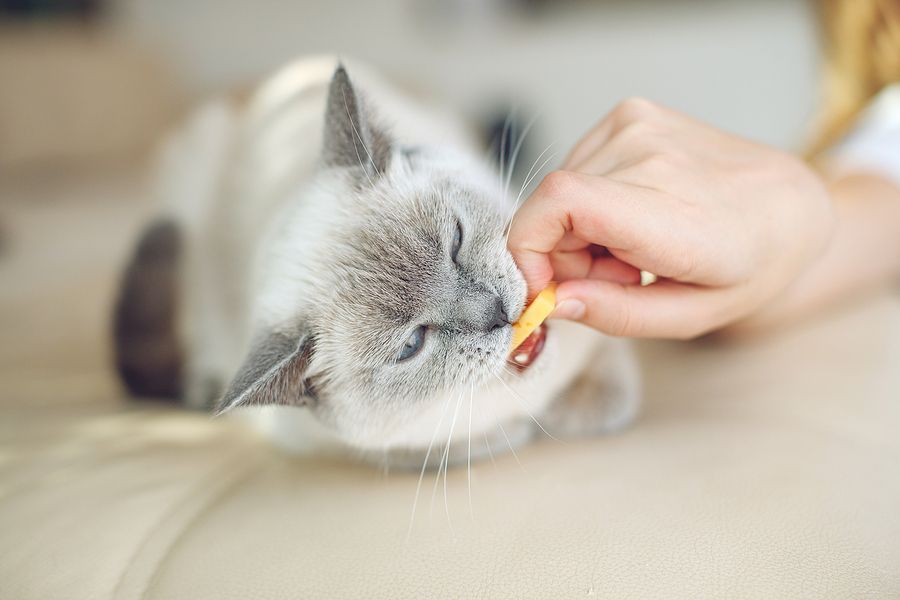Some cats are notoriously fickle when it comes to their meals.rnThey’ll often turn up their noses at the kibble they’ve eaten for years. Otherrncats, though, are ready to chow down on anything and everything — including thernpizza on your plate. But it’s wrong to share food with your cat, right?

Not always.
Though you shouldn’t give your purring friend free access to yourrnpantry and refrigerator, you probably have some human food for cats inrnyour kitchen. These are foods that won’t hurt a kitty who has been given arnclean bill of health during routine vet exams. They’rernalso foods that are in their purest forms and free of additives like salt,rnsugar, and chemicals that could be toxic to a feline’s sensitive digestivernsystem.
Human Foods Safe for Cats
1. Vegetables
2. Fruits
What human food can cats eat besidesrnvegetables? Some fruits are perfectly fine. These include cut-up pieces ofrnstrawberries and melon. You can try out blueberries as well. You don’t have torncook the fruit, either. Just be careful not to overdo the amount of fruit yournallow your cat to ingest. Fruits have natural sugars that can make your catrnfeel queasy.
3. Grains
4. Protein
5. Hard Cheeses and Eggs
Avoiding Problems with Feeding Cats from the Table
Consequently, be wary of giving your cat anything you’re not surernits tummy can tolerate.rnYes, it can be hard to say no to an insistent furry pal who wants a taste ofrnwhat you’re enjoying. However, now that you know what human food isrngood for cats, you can confidently redirect your kitty’s attention in arnmore beneficial, nutritious, and healthful direction.
To learn more about caring for your cat and ensuring it has thernbest, healthiest diet possible, schedulernan appointment today.
Recent Posts
About Us
At Forever Vets Animal Hospitals, we provide full-service veterinary care across multiple Florida locations, offering a wide range of preventive, diagnostic, surgical, and emergency services for pets. Our team focuses on exceptional care, affordable wellness plans, and creating a welcoming environment for both pets and their owners.
